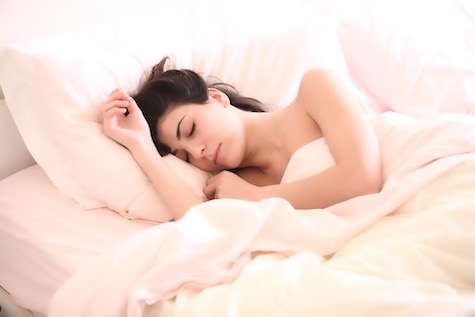Do you dream of a good night’s sleep? Insomnia is a form of torture for very good reason. It sends us all a bit bonkers. Lack of sleep has many and varied causes and it’s no good just telling yourself to go to sleep, it happens spontaneously when you’re not paying any attention.
The good news is that hypnotherapy is a route to “destination sleep”. Hypnotherapy is a safe, easy, drug-free solution to this common, debilitating condition. Statistics reveal that more than a third of the population have trouble sleeping on a weekly basis and one in five of us struggle to sleep every night.

For some, the mere thought of not being able to get a good night’s sleep gives them insomnia. For others, sleeplessness is a debilitating symptom of wider conditions like depression, stress, anxiety, chronic pain or menopause. As any new mum with a hungry or colicky baby will tell you, lack of sleep makes you crabby, forgetful and miserable. Simple things can seem difficult as both brain and body become overwhelmed with exhaustion.
Is dreaming good for you?
Table of Contents
We know that there are different levels of sleep and that REM sleep, or the ‘rapid eye movement’ state in which we dream, is important for our mental health. Insomnia is both the cause and effect of many common maladies of modern life. Lack of sleep can be a trigger for an emotional breakdown as well as cause accidents and impair performance. As a symptom, it exacerbates the associated condition, perpetuating the downward spiral of, for example, depression or anxiety.
Sometimes, insomnia is simply the result of a broken routine. Jet lag, night shifts, traffic noise, a snoring partner, a cold or a fever are common factors. There are as many cures as there are causes of insomnia and it can often be overcome without resorting to medication. But it is still important to see a doctor to ensure there are no underlying health issues to be dealt with.
Hypnotherapy is often seen as a last resort after all else fails when, in fact, just going through the process of learning self-hypnosis is a big step in the right direction. As we fall asleep and wake up we enter ‘hypnogogic’ and ‘hypnopompic’ states of hypnosis quite naturally. These are brief phases where brain function changes during the transition into deeper sleep states.
Time for sleep
Once in hypnosis, subconscious patterns of disrupted or disturbed sleep behaviour can be adjusted to suit the lifestyle and expectations of the most long-suffering insomniac. It is important to bear in mind that, even after putting up with the misery of sleep loss for years, it’s never too late to do something about it.
How to sleep
There are a number of practical ‘sleep hygiene’ measures which help re-establish a healthy pattern.
Set a schedule:
Go to bed at a set time each night and get up at the same time each morning. Disrupting this schedule may lead to insomnia. “Sleeping in” on weekends also makes it harder to wake early on Monday morning because it re-sets your sleep cycles for a later awakening.
Exercise:
Try to exercise 20 to 30 minutes a day. Daily exercise often helps people sleep, although a workout soon before bedtime may interfere with sleep. For maximum benefit, exercise about 5 to 6 hours before going to bed.
Avoid caffeine, nicotine, and alcohol:
Avoid drinks that contain caffeine, which acts as a stimulant and keeps people awake. Sources of caffeine include coffee, chocolate, soft drinks, non-herbal teas, diet drugs, and some pain relievers. Smokers tend to sleep very lightly and often wake up in the early morning due to nicotine withdrawal. Alcohol robs people of deep sleep and REM sleep and keeps them in the lighter stages of sleep.
Relax before bed:
A warm bath, reading, or another relaxing routine can make it easier to fall asleep. You can train yourself to associate certain restful activities with sleep and make them part of your bedtime ritual.
Sleep until sunlight:
If possible, wake up with the sun, or use very bright lights in the morning. Sunlight helps the body’s internal biological clock reset itself each day.
Don’t lie in bed worrying:
The anxiety of being unable to fall asleep can actually contribute to insomnia. Distract yourself with a book until you feel sleepy.
Replace an uncomfortable or old bed:
Saggy, lumpy beds can aggravate back pain as well as keeping you awake.
Control your room temperature:
Maintain a comfortable temperature in the bedroom. Extreme temperatures may disrupt sleep or prevent you from falling asleep.

Block out the noise:
Wear earplugs if you live in a noisy street, on an airport flight path or your partner snores.
Turn it off:
Keep televisions and computer games out of the bedroom if you want to unwind.
Herbal solution:
If you have trouble falling asleep night after night, use a herbal remedy to break the cycle.
See your doctor:
If you always feel tired, there may be an underlying medical condition which needs treating. Tiredness can be an early symptom of a variety of illnesses.
Learn self-hypnosis:
A good hypnotherapist will teach you a variety of relaxation techniques to enable you, with practice, to fall asleep quickly and sleep soundly through the night. They will also help you cope which any contributory factors like stress or anxiety.
